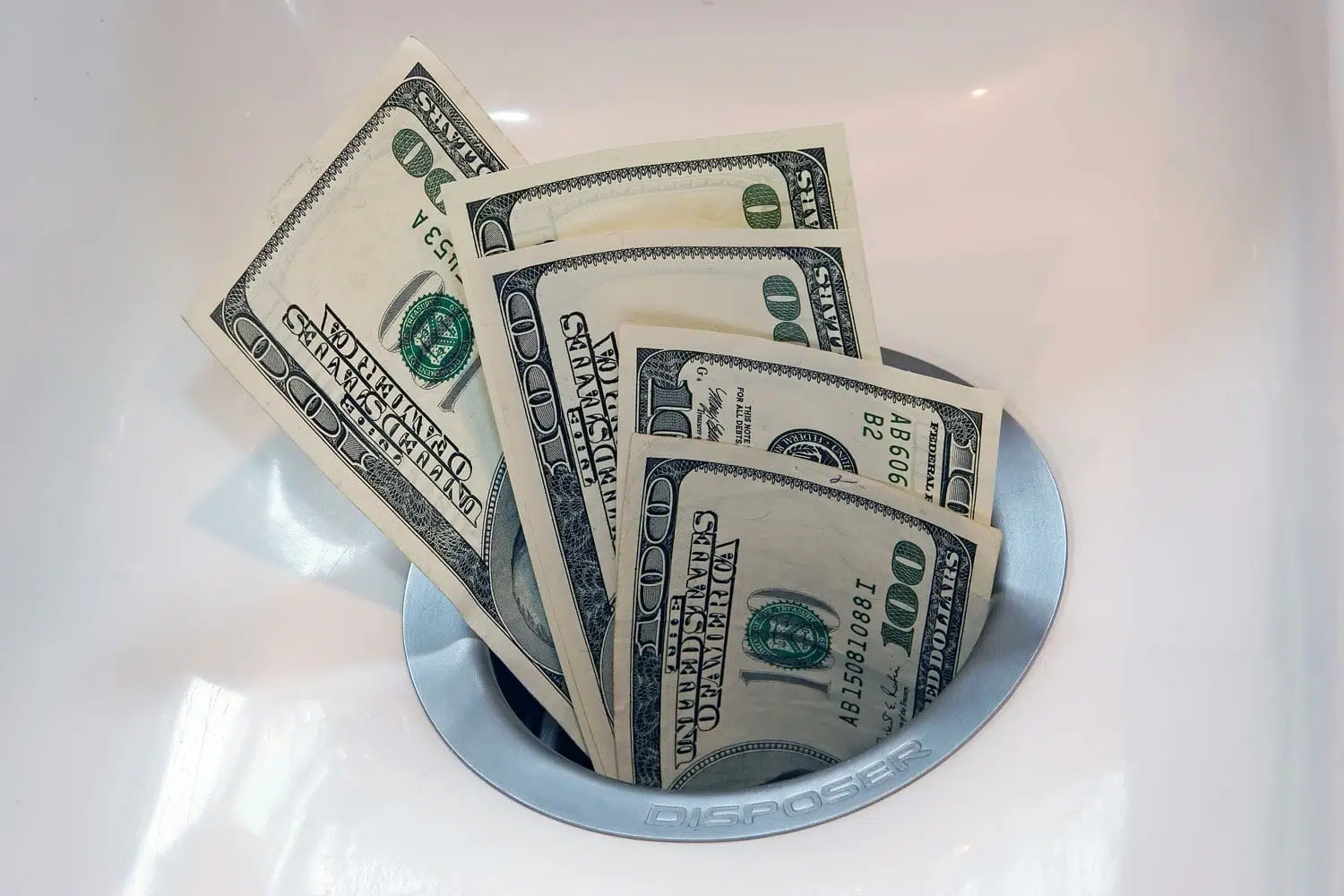The overturned trash hauler sprawled across four lanes of traffic in Colonial Heights, VA (south of Richmond). Waste and garbage was everywhere; traffic was at a standstill. Imagine for an instant if that tractor-trailer had been hauling everything you owned, and all your money. Scattered across the asphalt. That is the vision to conjure when considering not municipal waste, but marital waste.
Your Property and Marital Waste
You and your wife have marital assets, under Virginia law. In the Code of Virginia, the law of the Commonwealth, marital assets are one of three categories of property you and your wife can own:
- Separate Property — Assets gained by personal effort or inheritance before the marriage
- Marital Property — Assets gained during the marriage and used as shared property for the benefit of the marriage, like a marital home, retirement account, or RV
- Hybrid Property — Assets gained for the marriage but using separate property, like spending part of your inheritance on a vacation home for the family
Your wife can do what she wants with separate property, acquired by her before your marriage. She can elect to contribute some of that separate property (liquid assets) for the betterment of the marriage, making that improvement a hybrid asset.
With marital property, she has no legal right to squander the asset for her own selfish reasons. Marital waste is not simply spending money after separation; it is deliberately spending money on anything unrelated to the marriage or divorce.
Clements v. Clements
After separation, you and your wife still have the business of a (slowly dissolving) marriage to run. You have bills to pay; in fact, you have more bills to pay after separation than during your marriage, because you each must seek out competent legal representation. You also have a mortgage to pay, perhaps, on the marital home, automobile insurance, and so on.
All of those payments are legitimate reasons, says the National Law Review, to use the marital assets, even retaining two separate lawyers for your separation and divorce.
Our own state’s Clements v. Clements case before the Court of Appeals in Virginia set precedent that has been used nationally in defending the right of both sides in a separation and divorce to spend marital assets to fund the divorce. The court found that the husband and wife can both spend money from marital assets on:
- Living expenses
- Attorney fees
- Court filing fees
- Children’s tuition
- Spousal support
Your wife is legally entitled to use commingled assets to continue the daily functions of her life separate from you. Yes, you hope she is off earning her own income, but she cannot legally be accused of marital waste if you cannot prove she squandered the money.
What Is Marital Waste, Then?
Dissipation of assets is a serious charge. Virginia does not set down a 50-50 rule for property settlement; it calls for “equitable distribution,” which means (in lay terms) what you put in is roughly what you get out.
If you both contributed to some common asset, like purchasing stocks and bonds, you get out the proportion of proceeds equal to what you put in. Your income was greater, so you put in 75 percent of the funds; you get 75 percent of the profits.
Dissipation of assets is described in Code of Virginia § 20-107.3 under the portion of divorce law allowing the court to define and describe assets. If one spouse abuses the marital assets, that behavior is taken into account in the subsection E (10):
The use or expenditure of marital property by either of the parties for a nonmarital separate purpose or the dissipation of such funds, when such was done in anticipation of divorce or separation or after the last separation of the parties
This allows the judge to deny the offending spouse a claim on the residue of the assets, since she was proven (er — or he was proven; the law is gender-neutral) to have spent the money irresponsibly.
Proving Marital Waste
Proving marital waste can be difficult if you do not have full access to all the financial records of your marital assets. Your attorney can get much of that information through discovery, but as soon as you know you and your wife are separating, start collecting copies of every record you can.
Receipts for unnecessary items (furs, artwork, RVs, time shares, etc.) after separation can be proof, as can testimony from family members and friends as to your wife’s motives.
A judge shown convincing evidence that a spouse squandered marital assets can grant the aggrieved spouse an additional monetary award beyond equitable property division. The spendthrift spouse is left to her own devices on finding a way to pay the award and clean up the mess she has made.
Both a mind and a marital fund are terrible things to waste. With a call to The Firm For Men at 757-383-9184, or by contacting us online, you can connect with an experienced Virginia family law attorney. You can learn how to protect your marital assets, preserve your rights as a Virginia man, and arrange a stable future.

